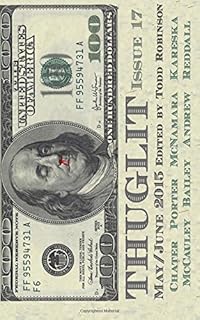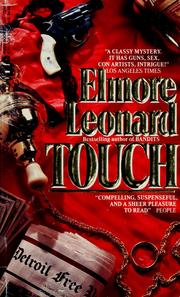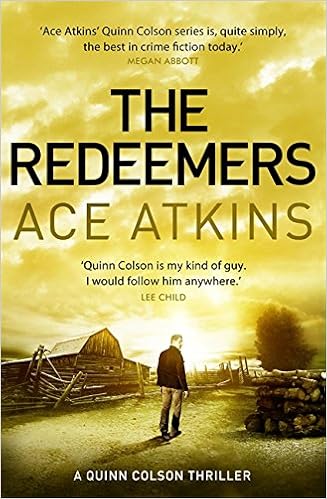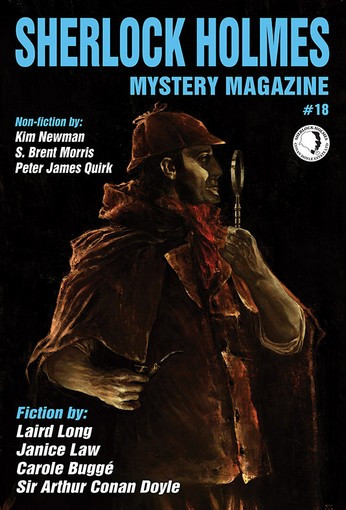As part of my tireless effort to make the world a better place I am
once again listing all the best short mysteries of the year, thereby
saving all the other award judges from a lot of tedious reading. (Well,
they could add
these to their assigned list. I
wouldn't mind.)
I recommend that all those judges take the time they save and do
something good for society. I would help, but I have to start reading
next year's stories.
This is the seventh time I have made an annual list. By coincidence, there were 14 stories on
last year's list, and the same number this time.
The big winner this year was
Ellery Queen's Mystery Magazine, with four stories. Tied with two each are
Sherlock Holmes Mystery Magazine, Strand Magazine, Thuglit, and the
Jewish Noir anthology.
Nine
stories are by men; five by women. (That's one more female winner than
last year.) Four are historical, four are funny, two are
parody/pastiches.
Okay. Drum roll, please...
 Camilleri, Andrea. "Neck and Neck," in The Strand Magazine," October 2015-January 2016.
Camilleri, Andrea. "Neck and Neck," in The Strand Magazine," October 2015-January 2016.
Montalbano,
Camilleri's series character, is appointed Chief Inspector in a village
in Sicily, and discovers that a Mafia family feud is well under well. A
member of the Cuffaros is snuffed out with an old-fashioned shotgun,
and then one of the Sinagras dies the same way.
But then something highly irregular happens.
Two members of the same family are killed in a row. How unseemly! And
Montalbano spots a way into the maze of silence...
Faherty, Terence. "The Man With The Twisted Lip," in Ellery Queen's Mystery Magazine, February 2015.
My former
co-blogger Terence
Faherty is making his third appearance on my annual best of list. Only
three other authors have scored that many times.
Faherty claims to have discovered Dr. John Watson's notebooks,
containing the rough drafts of Sherlock Holmes adventures, before they
were "cleaned up for publication." This is the fourth in his series.
Both versions begin with a woman calling at the home of Watson and his
wife, desperate because her husband has disappeared. In Doyle's version
the man is a drug addict and has vanished into an opium den. In
Faherty's tale the same man is a serial philanderer and is apparently
staying in a hotel of bad repute.
"My husband returns!" Rita exclaimed.
"Not a moment too soon," Holmes said.
"You don't understand. He's insanely jealous. And violent. If he finds me in here--"
Holmes sprang up. "Watson, I bow to your experience. Under the bed?"
 Gould, Heywood. "Everything is Bashert," in Jewish Noir, edited by Kenneth Wishnia, PM Press, 2015.
Gould, Heywood. "Everything is Bashert," in Jewish Noir, edited by Kenneth Wishnia, PM Press, 2015.
I
have a story in this book. Heywood Gould's tale is about Franny and
Larson, two petty lowlifes who like to spend their days at Aquaduct. And
it is at that race track one day that they run into a hasidic gentleman
they call the rabbi (he isn't). The rabbi has a Bible-based system for
betting on the horses, a sure thing of course, and yet somehow he is
short of money. Go figure. Our heroes lend him some cash and, well, a
wild ride commences that involves among other things, breaking into a
morgue, and ends with a sort of spiritual enlightment. A treat from
start to finish.
Hockey, Matthew J. "Canary," in Thuglit, 18, 2015.
Booster is a fireman with a chemistry degree, which earns him
the dubious privilege of being the first into a meth lab gone deadly.
He's the one who enters in full HAZMAT gear and has to determine
if all the idiots inside were killed by the poisonous brew they created
or whether there might be survivors. And this time he
finds a bag stuffed with four hundred grand. Obviously he ought to
leave it where it lies, but who will know if he doesn't? And so he
takes one step off the straight-and-narrow...
 Kareska, Lane. "Big Hard Squall," in Thuglit, issue 17, 2015.
Kareska, Lane. "Big Hard Squall," in Thuglit, issue 17, 2015.
Abby has
been brutally attacked and locked in the trunk of her car, which is now
headed for parts unknown. We stay in Abby's head as she runs through
her life and concludes that there is no one who would want to do this to
her. Therefore the target must be her daughter Margaret, a prosecuting
attorney. Either someone wants to punish Margaret or else put a
squeeze on her, and Abby is the pawn in jeopardy. But when the trunk lid opens Abby and us - are in for surprises.
Lewis, Evan. "The Continental Opposite," in Alfred Hitchcock's Mystery Magazine, May 2015.
What chutzpah. Lewis has revived Dashiell
Hammett's Continental Op.
This
story takes place in the fifties, decades after the Op's last
appearance. The main character is a young detective named Peter Collins
(he notes bitterly that his father deliberately gave him a name that is
gangland slang for "nobody"). Peter works for the Portland, Oregon
branch of a national detective agency and when he accuses his boss of
corruption the company sends in a retired op who used to work for the San Francisco branch ("sometime
in the forties Continental had put him out to pasture, and he'd spent
the years since killing a vegetable garden, sneering at golf courses, and
not catching fish."). This guy strongly resembles Hammett's hero, much older and, if possible,
more cynical. A brilliant story.
Liss, David. "Jewish Easter," in Jewish Noir, edited by Kenneth Wishnia, PM Press, 2015.
Al's family moved from Long Island to Jacksonville, Florida, when he was
in third grade, because of his stepfather's import business. Now he is
thirteen and has begun to figure out exactly what is being imported.
But that's not his immediate problem. There are a couple of
anti-Semetic rednecks in his class and when they hear about Passover
(which the sensitive teacher helpfully describes as "Jewish Easter,")
they decide to invite themselves forcefully to the seder. Let all who
are hungry come and eat, right?
What
I loved about the story is not the suspense but the surprising choices
the characters make (especially the grandmother). It kept me guessing
right up to the last paragraph.
Maron, Margaret. "We On The Train!" in Ellery Queen's Mystery Magazine, May 2015.
Greg
McInnis is a DEA agent who prefers to travel by
train. On a trip up the east coast he is amused by a young
African-American woman who is gleefully phoning everyone she knows to
tell them that she is going to visit New York with an older man she says
is her Uncle Leon.
Sounds innocent enough, but this is
a crime story, so something else must be going on here. Will our hero
figure it out in time? He only has four pages...
Newman, Kim. "Red Jacks Wild," in Sherlock Holmes Mystery Magazine, Issue 17, 2015.
John Carmody is a psychologist in New York in 1951. He also happens to be Jack the Ripper.
Wait a minute, you say. He'd have to be a hundred years old.
Well,
he is. But he looks the same age he did in the 1880s when he started
making human sacrifices to the evil goddess Hecate. Which he still does, every three
years.
But not prostitutes every time. He alters his
"disposables," choosing victims from a group no one will care about.
Which makes him a weathervane pointing at whoever is on the bottom of
the social pile. This story is all about America's twisted psyche, and I
loved it.
Opperman, Meg. "The Discovery," in Sherlock Holmes Mystery Magazine, Issue 18, 2015.
While studying at a university in her native
Venezuela Celeste meets and marries Robert
and moves to Washington, D.C.
Robert is a classic abusive, controlling, husband. Celeste's every
move is watched, her phone calls monitored. When her bus home is late
she is beaten.
Reaching into a hand-carved box, I sort through the gold jewelry and select Robert's latest apology.
But what makes this story more than just a tale of domestic misery is
that each scene is prefaced with a quotation from Christopher Columbus's
letters or logbooks, describing his encounters with the natives of the
new world. It is no accident that Celeste and Robert get married on
Columbus Day.
Palumbo, Dennis. "A Theory of Murder," in And All Our Yesterdays, edited by Andrew MacRae, Darkhouse Books, 2015.
The publisher sent me this book for free.
It's Bern, Switzerland, 1904. Hector, a clerk in the patent office,
is suspected of a series of grisly murders. Luckily a friend of his,
also a patent clerk, is looking into the crimes. And Albert Einstein is
a pretty bright guy... Wish I'd thought of that.
Ross, Gary Earl. "Good Neighbors," in Buffalo Noir, edited by Ed Park and Brigid Hughes, Akashic Press, 2015.
Lou
and Athena have retired after running their Greek restaurant for
decades. Lou's hobby is antiques. He doesn't collect them, he just
wants to buy low and sell high. But then he discovers that his elderly
neighbor Helen has a house full of the things. And Helen has no relatives, no
favorite charities, no one to leave her precious belongings to. So Lou
and Athena set out to become really good neighbors and wait for Helen to
pass away.
But then the Washingtons move in on the
other side, and it turns out that they are good neighbors too. This
story is well-written, beautifully structured, and one of those rare
pieces I reread as soon as I finished it.
Rozan, S.J. "Chin Yong-Yun Meets A Ghost," in Ellery Queen's Mystery Magazine, March-April 2015.

This
is my
buddy S.J. Rozan's second story told
by the formidable mother of her series detective Lydia Chin. When Mrs.
Chin gets a phone call from Gerald Yu she is annoyed for three
reasons. First, Yu is a gambler and not very
bright. Second, he wants to involve daughter Lydia in his troubles.
And third, he happens to be dead.
"It's about my death, but it's not vengeance I'm after. Also, it's not really about my death, because I'm not dead."
"Who told you that? They're lying."
Rusch, Kristine Kathryn. "Christmas Eve at the Exit," in Ellery Queen's Mystery Magazine, January 2015.
This is Ms. Rusch's second appearance on my annual best list.
It
is Christmas eve and Rachel and her little girl are on the run. Many
pages will pass before we find out from who, and about the shadowy support system that is helping
them.
Rachel is terrified, not sure who to trust, and
desperately trying to keep up an appearance of normality for her
daughter who, heartbreakingly, seems mostly concerned about Santa Claus. This story will appear in holiday-themed anthologies for
years to come.
 Back in November I had the chance to speak at the university where I work about my novel Greenfellas. The good folks there have put a video of my talk on the web, which reminded me of something I wanted to discuss about it.
Back in November I had the chance to speak at the university where I work about my novel Greenfellas. The good folks there have put a video of my talk on the web, which reminded me of something I wanted to discuss about it. All of which is fine and dandy. But in the Q&A someone asked me what types of mysteries I particularly enjoyed. I happened to mention Elmore Leonard - and then I was stumped as the thought ran through my head: What type of mystery did Elmore Leonard write?
All of which is fine and dandy. But in the Q&A someone asked me what types of mysteries I particularly enjoyed. I happened to mention Elmore Leonard - and then I was stumped as the thought ran through my head: What type of mystery did Elmore Leonard write? The subject was also on my mind because I had recently read Ace Atkins novel The Redeemers, which struck me as being very much in Leonard's territory. (That's a compliment to Atkins, by the way.) And I can't exactly say he is writing Elmore Leonard novels.
The subject was also on my mind because I had recently read Ace Atkins novel The Redeemers, which struck me as being very much in Leonard's territory. (That's a compliment to Atkins, by the way.) And I can't exactly say he is writing Elmore Leonard novels. You could argue that my book Greenfellas falls into that category, but I don't think it does. First of all, it's a comic crime novel. It's an organized crime novel, about the Mafia. (Leonard's characters tend to be disorganized crime.) And - I have harder time explaining this one - to me it's a criminal's Pilgrim's Progress, concentrating on one bad guy as he goes through a life-changing crisis.
You could argue that my book Greenfellas falls into that category, but I don't think it does. First of all, it's a comic crime novel. It's an organized crime novel, about the Mafia. (Leonard's characters tend to be disorganized crime.) And - I have harder time explaining this one - to me it's a criminal's Pilgrim's Progress, concentrating on one bad guy as he goes through a life-changing crisis.




































